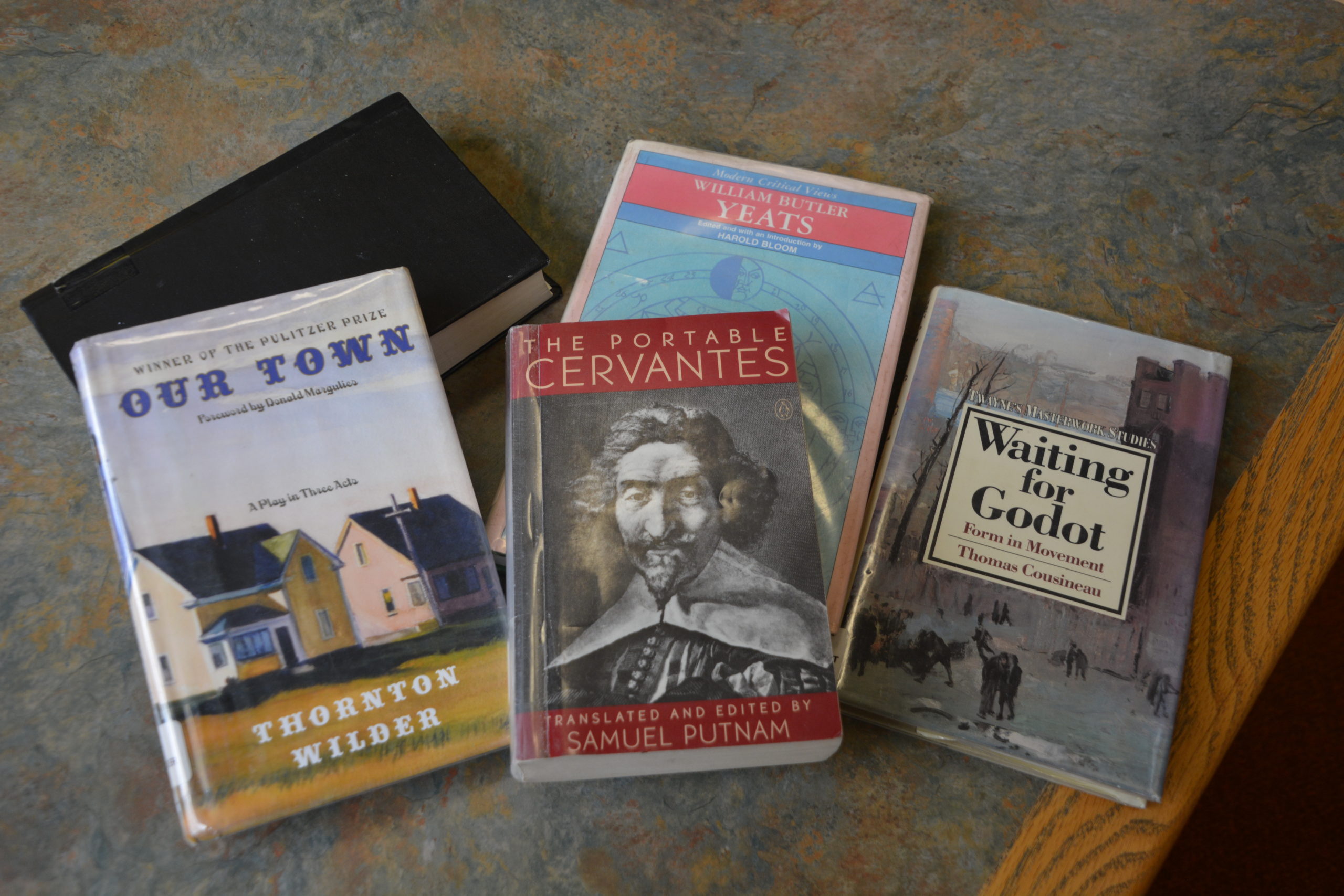The adult mind, perhaps more than the young mind, is in need of wisdom, guidance, meaning and solace.
As adults, we all face the dreaded mid-life crisis which is the slow and steady realization that one’s energy and health are waning.
In addition, we must deal with a steady array of psychological insults, a variety of temptations and media seductions all of which result in confusion and bewilderment. We all pulled in a thousand directions every day.
So exactly how does one find some real answers to all these crucial questions? Some turn to drugs or food, others turn to religion, many love TV and others seek nirvana through meditation.
Goodness, gracious! What to do?
If you’re looking for real answers why not read the classics of literature. For more than two thousand years our greatest minds have been grappling with the basic question of life’s meaning, how to deal with aging and how to live a good life.
Reading the masterpieces is like having a private audience with the world’s most gifted people.
So if you’re looking for life’s meaning, if you want to find the pathway to happiness here is my short list of the essential readings. There are many more I could recommend but this will do for now:
The two best plays:
“Our Town” by Thornton Wilder, 1938: In this Pulitzer Prize-winning play Wilder managed to make ultimate statements about daily life, marriage and death in three acts.
It was to become the most cherished of all American plays, is still performed regularly throughout the world. If you read nothing else in your life you should read Our Town to learn about how precious life is and how to appreciate each day.
“Waiting for Godot” by Samuel Beckett, 1949: Widely considered to be the most important play of the 20th century, “Waiting for Godot” is an existential masterpiece, elegantly written, absurd in nature and spare.
It’s a play about Vladimir and Estragon, two friends who spend their time arguing and suffering in a barren field under a dead tree. Throughout the play, they await the arrival of Godot to save the day who always promises to show up tomorrow.
The two best poems:
“The Second Coming” by W.B. Yeats, 1919: In this 22 line poem Yeats foretold what was about to happen to mankind over the next 100 years. Many of the phrases in the poem have become catchphrases in our culture.
When you hear the phrase “And what rough beast it’s hour comes round at last” you know it came from this poem. Since it was written in 1919 this poem inspired many other writers including Joan Didion who wrote “Slouching toward Bethlehem” as an homage.
“Perceval, The Story of the Holy Grail by Chretien de Troyes,” 1185: This epic masterpiece is the story of a young boy who becomes a knight and spends his life in search of the mystical chalice which has the power to heal.
This poem had a profound effect on medieval literature and 800 years later it still inspires others. This poem was the primary model for the Steven Spielberg trilogy Raiders of the Lost Arc, Indiana Jones and the Last Crusade and Indiana Jones and the Temple of Doom.
The two best essays:
“The Lantern-Bearers” by Robert Lewis Stevenson, 1888: The essay by the Scottish author of Treasure Island is a sweet reminiscence of his childhood days spent in a fishing village in Scotland.
What makes it so stunning is how he uses the image of bulls-eye lanterns to convince the reader that there is magic in our inner world and that our destiny is to find it.
“The Ring of Time” by E.B. White , 1956: The famed New Yorker writer E.B. White is on a winter sojourn in Sarasota, Fla., and happens upon Ringling Bros. circus rehearsing before their road trip.
White describes the dull practice routine of a teenage female circus rider practicing her craft by casually standing upon her horse as it makes its way around the ring.
White somehow manages to instill the feeling of magnificence and the beauty of an artist practicing her craft and simultaneously invokes the tragedy of the aging process as time passes along.
The two best novels:
“Remembrance of things past” by Marcel Proust, 1913: Thisseven-volumee masterpiece is considered the most respected novel of the 20th century and took over thirteen years to complete.
The story begins with the main character as an adult trying to recall what the smell of his cup of tea reminds him of. This leads into a stunning seventy page passage of his memory of sharing petite madeleine cookies with his aunt and of taking long walks along Meseglise and Guermantes Way in the south of France with his family.
One of the many lasting impacts of this novel was that it prompted the creation of an entirely new field of study in psychology called ‘involuntary memory.’
“Don Quixote by Cervantes,” 1605: This founding work of modern Western literature is the tale of an old man who loves to read stories about knights and decides to become one himself and is a true tale of madness, of hope and of holding fast to your dream.
Every masterpiece is about a journey. Don Quixote, “Huckleberry Finn,” “Robinson Crusoe” and “Moby Dick” describe outward journeys.
“Remembrance of Things Past” or “The Divine Comedy” take you on an inner journey.
What I know is that now is the time to shut off the TV, heat some tea, turn on your reading lamp and enjoy a journey with some of the great thinkers of the past. They have plenty of answers to most of our questions. (And thank you Tracy for asking for a reading list.)



